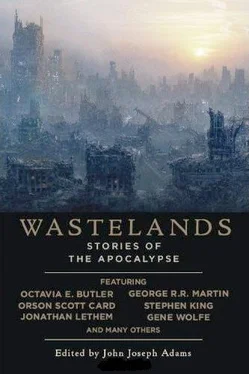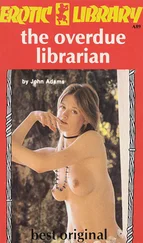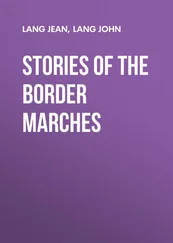Everybody promises during times like those days immediately following the tragedy that lives have been ruined, futures shattered but only Trina Needles fell for that and eventually committed suicide. The rest of us suffered various forms of censure and then went on with our lives. Yes it is true, with a dark past but, you may be surprised to learn, that can be lived with. The hand that holds the pen (or chalk, or the stethoscope, or the gun, or lover’s skin) is so different from the hand that lit the match, and so incapable of such an act that it is not even a matter of forgiveness, or healing. It’s strange to look back and believe that any of that was me or us. Are you who you were then? Eleven years old and watching the dust motes spin lazily down a beam of sunlight that ruins the picture on the TV and there is a sound of bells and goats and a laugh so pure we all come running to watch the girls in their bright colored scarves, sitting in the goat cart which stops in a stutter of goat-hoofed steps and clatter of wooden wheels when we surround it to observe those dark eyes and pretty faces. The younger girl, if size is any indication, smiling, and the other, younger than us, but at least eight or nine, with huge tears rolling down her brown cheeks.
We stand there for a while, staring, and then Bobby says, “What’s a matter with her?”
The younger girl looks at her sister who seems to be trying to smile in spite of the tears. “She just cries all the time.”
Bobby nods and squints at the girl who continues to cry though she manages to ask, “Where have you kids come from?”
He looks around the group with an are-you-kidding kind of look but anyone can tell he likes the weeping girl, whose dark eyes and lashes glisten with tears that glitter in the sun. “It’s summer vacation.”
Trina, who has been furtively sucking her thumb, says, “Can I have a ride?” The girls say sure. She pushes her way through the little crowd and climbs into the cart. The younger girl smiles at her. The other seems to try but cries especially loud. Trina looks like she might start crying too until the younger one says, “Don’t worry. It’s just how she is.” The crying girl shakes the reigns and the little bells ring and the goats and cart go clattering down the hill. We listen to Trina’s shrill scream but we know she’s all right. When they come back we take turns until our parents call us home with whistles and shouts and screen doors slam. We go home for dinner, and the girls head home themselves, the one still crying, the other singing to the accompaniment of bells.
“I see you were playing with the refugees,” my mother says. “You be careful around those girls. I don’t want you going to their house.”
“I didn’t go to their house. We just played with the goats and the wagon.”
“Well all right then, but stay away from there. What are they like?”
“One laughs a lot. The other cries all the time.”
“Don’t eat anything they offer you.”
“Why not?”
“Just don’t.”
“Can’t you just explain to me why not?”
“I don’t have to explain to you, young lady, I’m your mother.”
We didn’t see the girls the next day or the day after that. On the third day Bobby, who had begun to carry a comb in his back pocket and part his hair on the side, said, “Well hell, let’s just go there.” He started up the hill but none of us followed.
When he came back that evening we rushed him for information about his visit, shouting questions at him like reporters. “Did you eat anything?” I asked, “My mother says not to eat anything there.”
He turned and fixed me with such a look that for a moment I forgot he was my age, just a kid like me, in spite of the new way he was combing his hair and the steady gaze of his blue eyes. “Your mother is prejudiced,” he said. He turned his back to me and reached into his pocket, pulling out a fist that he opened to reveal a handful of small, brightly wrapped candies. Trina reached her pudgy fingers into Bobby’s palm and plucked out one bright orange one. This was followed by a flurry of hands until there was only Bobby’s empty palm.
Parents started calling kids home. My mother stood in the doorway but she was too far away to see what we were doing. Candy wrappers floated down the sidewalk in swirls of blue, green, red, yellow and orange.
My mother and I usually ate separately. When I was at my dad’s we ate together in front of the TV which she said was barbaric.
“Was he drinking?” she’d ask. Mother was convinced my father was an alcoholic and thought I did not remember those years when he had to leave work early because I’d called and told him how she was asleep on the couch, still in her pajamas, the coffee table littered with cans and bottles which he threw in the trash with a grim expression and few words.
My mother stands, leaning against the counter, and watches me. “Did you play with those girls today?”
“No. Bobby did though.”
“Well, that figures, nobody really watches out for that boy. I remember when his daddy was in high school with me. Did I ever tell you that?”
“Uh-huh.”
“He was a handsome man. Bobby’s a nice looking boy too but you stay away from him. I think you play with him too much.”
“I hardly play with him at all. He plays with those girls all day.”
“Did he say anything about them?”
“He said some people are prejudiced.”
“Oh, he did, did he? Where’d he get such an idea anyway? Must be his grandpa. You listen to me, there’s nobody even talks that way anymore except for a few rabble rousers, and there’s a reason for that. People are dead because of that family. You just remember that. Many, many people died because of them.”
“You mean Bobby’s, or the girls?”
“Well, both actually. But most especially those girls. He didn’t eat anything, did he?”
I looked out the window, pretending a new interest in our backyard, then, at her, with a little start, as though suddenly awoken. “What? Uh, no.”
She stared at me with squinted eyes. I pretended to be unconcerned. She tapped her red fingernails against the kitchen counter. “You listen to me,” she said in a sharp voice, “there’s a war going on.”
I rolled my eyes.
“You don’t even remember, do you? Well, how could you, you were just a toddler. But there was a time when this country didn’t know war. Why, people used to fly in airplanes all the time.”
I stopped my fork halfway to my mouth. “Well, how stupid was that?”
“You don’t understand. Everybody did it. It was a way to get from one place to another. Your grandparents did it a lot, and your father and I did too.”
“You were on an airplane?”
“Even you.” She smiled. “See, you don’t know so much, missy. The world used to be safe, and then, one day, it wasn’t. And those people,” she pointed at the kitchen window, straight at the Millers’ house, but I knew that wasn’t who she meant, “started it.”
“They’re just a couple of kids.”
“Well, not them exactly, but I mean the country they come from. That’s why I want you to be careful. There’s no telling what they’re doing here. So little Bobby and his radical grandpa can say we’re all prejudiced but who even talks that way anymore?” She walked over to the table, pulled out a chair and sat down in front of me. “I want you to understand, there’s no way to know about evil. So just stay away from them. Promise me.”
Evil. Hard to understand. I nodded.
“Well, all right.” She pushed back the chair, stood up, grabbed her pack of cigarettes from the windowsill. “Make sure not to leave any crumbs. This is the time of year for ants.”
From the kitchen window I could see my mother sitting on the picnic table, a gray plume of smoke spiraling away from her. I rinsed my dishes, loaded the dishwasher, wiped the table and went outside to sit on the front steps and think about the world I never knew. The house on top of the hill blazed in the full sun. The broken windows had been covered by some sort of plastic that swallowed the light.
Читать дальше












